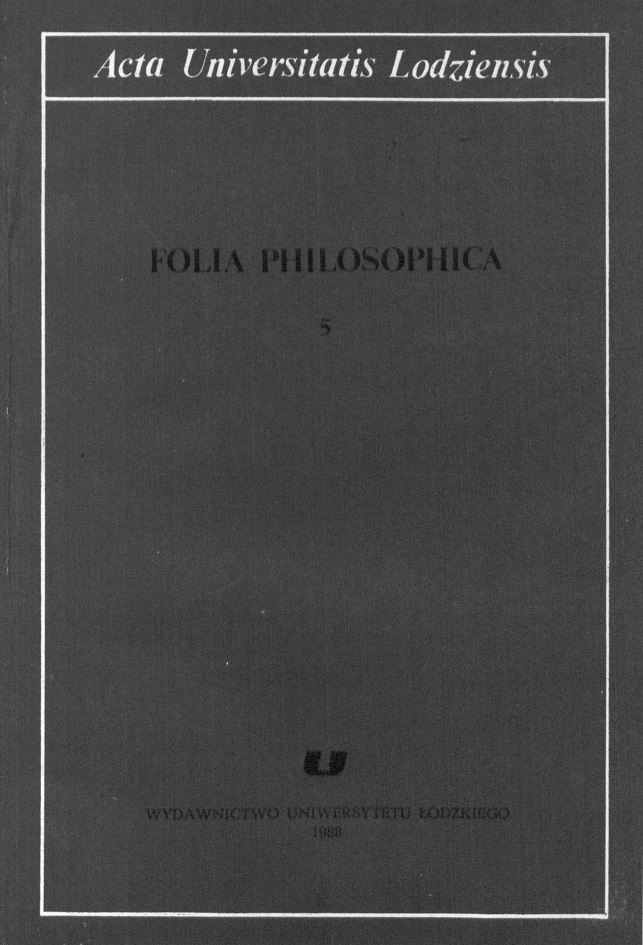Perelman a tradycja racjonalizmu
DOI:
https://doi.org/10.18778/0208-6107.05.10Abstrakt
The philosophical thought of Perelman is characterized with criticism of all philosophies seeking the first, unshakable and absolute principles. Such philosophies are trying to attain their aim among others through referring to obviousness. The trends of this kind are characteristic for classical rationalism (e.g. Cartesian philosophy). R. Descartes thinks that cognizance worthy of being called "knowledge" should be such cognizance, which is characterized with perfection and homogeneousness. Perelman rejects existence of absolute criteria and emphasizes that a cognizing mind is shaped by the intellectual tradition and education. Philosophical cognizance is able to improve and change itself continually when it is supported by certain reasons. The Belgian philosopher's thought resembles, in many respects, the concepts of the so-called new rationalism (F. Gonseth, G. Bachelard, J. Piaget). Simultaneously, however, Perelman stresses the fact of irreducibility of philosophy to science as philosophical problems are characterized with constant contestability, controversial character, and openness to new solutions. Generally speaking, the philosophical thought in question may be called "antiabsolutist" and "pluralistic".
Pobrania
Opublikowane
Jak cytować
Numer
Dział
Licencja

Utwór dostępny jest na licencji Creative Commons Uznanie autorstwa – Użycie niekomercyjne – Bez utworów zależnych 4.0 Międzynarodowe.












